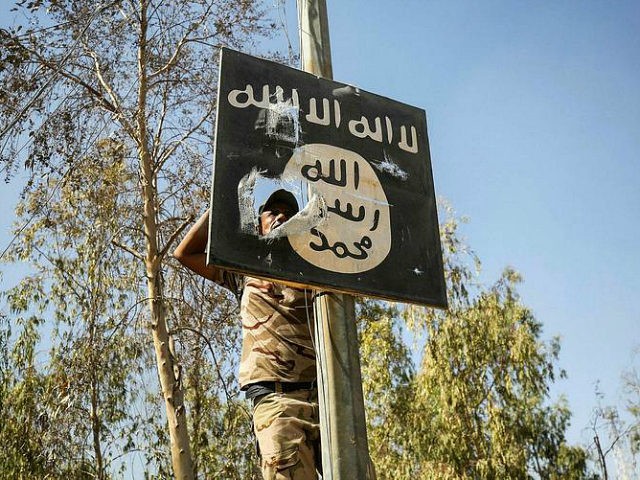Masrour Barzani, the head of the Kurdistan Regional Government (KRG) security council in Iraq, told the outlet Kurdistan 24 during a visit to Washington this week that the Islamic State (IS/ISIS) is “re-emerging” in places like Kirkuk, previously held by the Kurdish Peshmerga.
The Iraqi government has not taken any “practical steps” to target the environments that allow for groups like ISIS to grow and spread, Barzani argued.
His remarks follow weeks of intermittent clashes between the terrorist group and the Iran-backed Popular Mobilization Forces (PMF/PMU) in the Kirkuk region following the expulsion of the Peshmerga from the area. Kirkuk is ethnically diverse and not contained within the borders of the KRG, but fell under Peshmerga control after an Islamic State attack sent the Iraqi military fleeing in 2014. In October, Baghdad returned with the help of the newly-legalized PMF and expelled the Peshmerga. The United States vowed not to “take sides,” President Donald Trump said, between the long-time U.S.-allied Peshmerga and the PMF, who have repeatedly threatened to kill American soldiers.
“Militarily, IS is defeated and have lost territory they were in control of, but it does not mean they have been obliterated, since they are now re-emerging in some areas, and have even attacked security forces in Kirkuk Province,” Barzani told the Kurdish outlet. “To eliminate IS and other similar groups, the factors that lead to their rise must be resolved, but, so far, Iraq has made no practical steps in this regard.”
The invasion of Kirkuk was a reaction to Erbil, the capital of the KRG, holding a non-binding referendum in September asking residents whether they would support independence from Iraq. The KRG chose to hold the election throughout the Kurdish region including Kirkuk, angering Baghdad, which interpreted the vote—and the overwhelming support for independence it revealed—as a secessionist move. Kurdish officials insisted they would not move towards independence in the aftermath of the vote without holding extensive discussions with Baghdad, but Prime Minister Haider al-Abadi ordered the PMF to invade Kirkuk, anyway.
The U.S. government, which relied heavily on the Peshmerga to eradicate ISIS from Kirkuk and Mosul, the second-largest city in Iraq, did not intervene in the invasion. Instead, President Trump issued a statement distancing Washington from Erbil.
“We don’t like the fact that they’re clashing. We’re not taking sides, but we don’t like the fact that they’re clashing. Let me tell you, we’ve had for many years [a] very good relationship with the Kurds, as you know, and we’ve also been on the side of Iraq even though we should never have been there in the first place, but we’re not taking sides in that battle,” Trump said.
“We thought that the referendum would prevent the unfair attacks carried out against the Kurdistan Region. We needed an international guarantee to prevent bloodshed and similar catastrophes that the Kurdish people have faced for decades,” Barzani told Kurdistan 24 this week. “Unfortunately, it was interpreted differently. We believe this interpretation was intentional. … The impact of the referendum did not rise to a level that would justify such an unjust assault on the Kurdistan Region.”
The invasion has bolstered the return of the Islamic State to the area. ISIS made their presence known in an attack the day after the Peshmerga were forced out in October and have since gotten more belligerent against PMF fighters. In mid-February, Islamic State terrorists killed dozens of PMF fighters in the Kirkuk areas after ambushing them amid poor weather, according to the militia group.
On Saturday, the Islamic State targeted an oil field and killed at least two police officers. The outlet Al Monitor reports that Islamic State supporters on the encrypted communications app Telegram have “been buzzing with reports of dozens of assassination attempts on Iraqi security forces, mainly in the Hawija area southwest of Kirkuk province.”
The Kurdish outlet Bas News reported on Thursday that “large units” of Iraqi military assets appeared to be moving into Kirkuk to reinforce the territory.

COMMENTS
Please let us know if you're having issues with commenting.